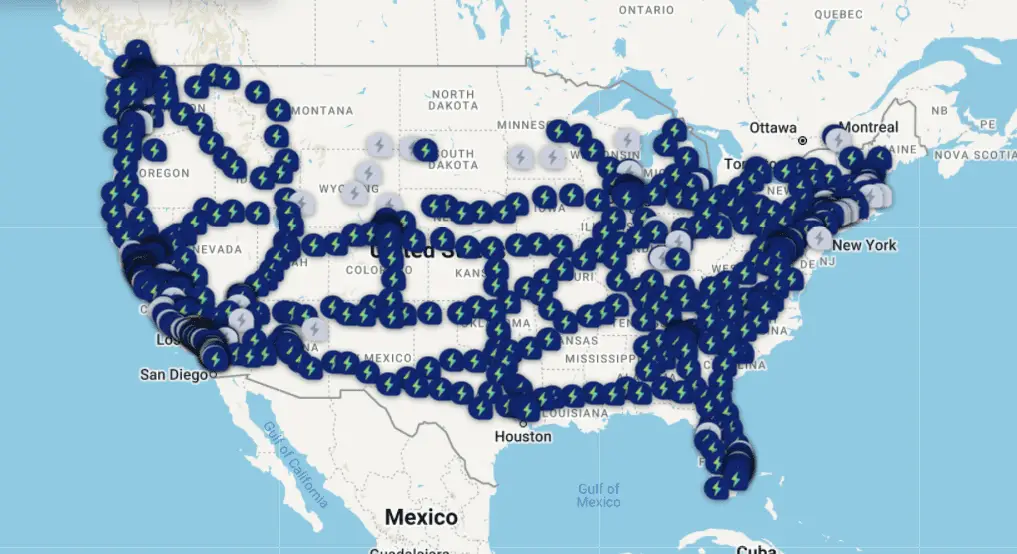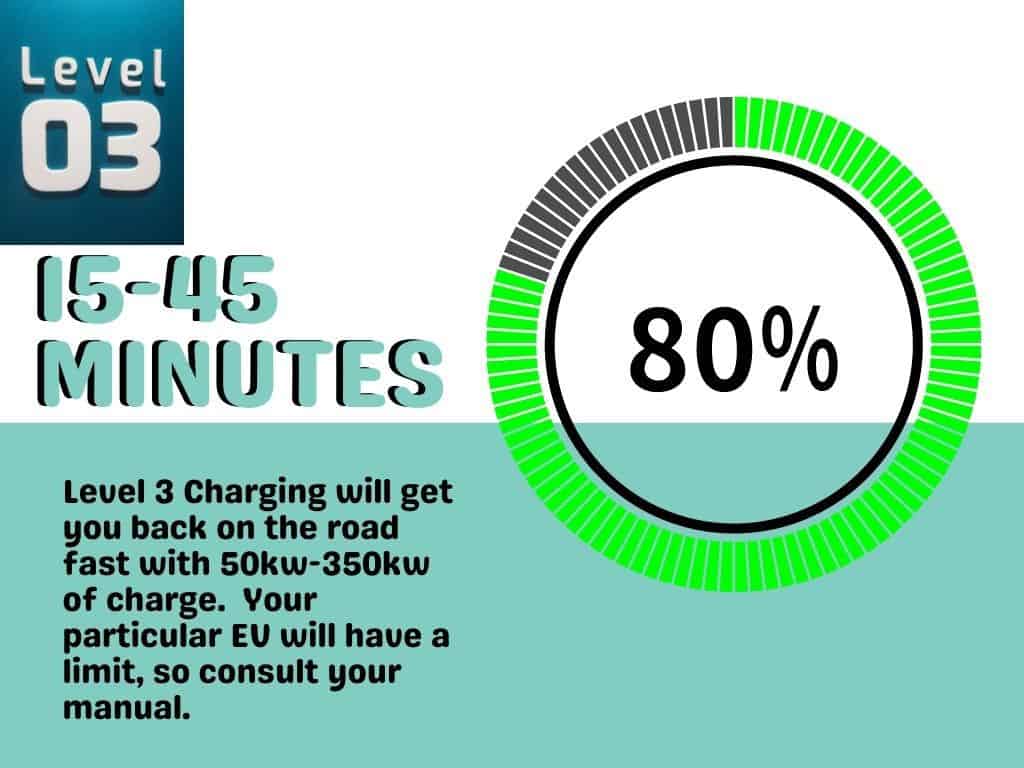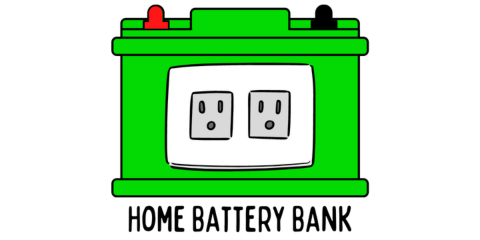One of the perks of driving an electric vehicle is being able to combine the charging process with your shopping trip. Two birds with one stone, so to speak.
Walmart has been a expanding its charging stations at a rapid rate, especially along major interstates.
If you’re newer to the concept of charging as you shop, you’re likely wondering just how long it will take to fill your electric battery back up.
Generally, you can expect to charge your electric vehicle up to 80% in 15-30 minutes from a Walmart charging station. The charging speeds at select Walmart locations are 150kW and 350kW and are provided by Electrify America. The cost to charge is by the minute or by the kilowatt-hour, depending on your state.
Below we’ll discuss where you can charge your vehicle at Walmart, how long it takes to charge an EV at Walmart, and the cost of charging an electric vehicle at Walmart.
Can I Charge My Electric Car at Walmart
Walmart, as a brand, does incorporate charging stations at many, but not all of its stores — yet.
Walmart is partnered with Electrify America in bringing EV charging stations to more and more locations at a rapid rate.
If you look at Electrify America’s website, you will see all of their charging locations. At the time of this article, there were 720 completed and 106 underway. Not all of these are at a Walmart location, and many of the stations are located at competitors of Walmart as well.

If you zoom in on the map at the right level, you’ll notice a pattern that the stations are all located along the most major of interstates and highways. So, if you’ve got a rural Walmart, you’re likely going to have to wait a while.
How Long Does it Take to Charge An EV at Walmart
The Walmart locations that do offer EV charging stations do so at 150kW up to 350kW. “kW” is short for kilowatts, or 1,000 watts.
Charging done at these speeds is done with Direct Current (DC) and not Alternating Current (AC), so it can bypass the onboard converter and charger in your EV and charge the battery directly. When using DC voltage, you are charging at Level 3 charging speeds. Sometimes this is referred to as “rapid charging” or “fast charging”.
On average, the typical range that you would gain per minute of rapid charging will be 8-20 mile, depending on the charging speed and the vehicle efficiency. Either way, most vehicles can charge from empty to 80% in 30 minutes or less.

Let’s take a look at the table below at some of the top 11 selling models in the USA and see what times you might expect if you were to charge at a Walmart charging station.
Keep in mind that even if a station offers 350kW, that does not mean that your car can accept it. In fact, at the time this article is being written, I believe the Porsche Taycan is the only EV to come close to that speed. In the table below you’ll see the maximum allowable current at Level 3 charging speeds.
Regardless, if the charging speed exceeds your vehicle’s max limit, then your vehicle will only receive up to its max. You can still use the charging station, you just won’t max it out.
| EV Model | Year | Net Battery Capacity (Usable) | Level 3 Charging Limit in Kilowatts | Walmart Charging from 10% to 80% charge at 150kW (Minutes) | Walmart Charging from 10% to 80% charge at 350kW (Minutes) |
|---|---|---|---|---|---|
| Tesla Model Y | 2022 | 75kW | 210 | 22 | 16 |
| Tesla Model 3 | 2022 | 82kW | 250 | 24 | 15 |
| Ford Mustang Mach E | 2022 | 91kW | 250 | 27 | 16 |
| Chevy Bolt EV | 2022 | 65kW | 55 | 52 | 52 |
| Volkswagen ID.4 | 2022 | 77kW | 135 | 25 | 25 |
| Nissan Leaf | 2022 | 62kW | 100 | 27 | 27 |
| Audi e-tron | 2022 | 91.5kW | 150 | 27 | 27 |
| Porsche Taycan | 2022 | 83.7kW | 270 | 25 | 14 |
| Tesla Model S | 2022 | 98kW | 250 | 29 | 17 |
| Hyundai Kona Electric | 2022 | 64kW | 75 | 38 | 38 |
| Tesla Model X | 2022 | 95kW | 250 | 28 | 17 |
When looking at this table, don’t think that just because a vehicle takes 20 minutes longer to charge that it is worse than one that takes 20 minutes less. Some EVs have ranges that far exceed others. If a vehicle takes 20 minutes longer to charge but you’ll receive 150 extra driving miles, then that’s something to take into consideration.
Likewise, just because two vehicles have the same charging time does not mean that they are equal. One might have a bigger battery, longer range, and a faster max charging speed and charge the same as one with a smaller battery, shorter range, and a reduced max charging speed.
If you’re wondering how these numbers were calculated, you can check out my article here on Level 3 charging and you’ll be able to see the easy to use formulas so that you can calculate charging times and miles gained per minute of charging for any EV.
Is it Free to Charge an EV at Walmart (How Much Does it Cost)
It is not free to charge an EV at Walmart’s charging stations. The Electrify America charging stations located at select Walmart locations charge by the minute or by the kilowatt-hour (kWh) depending on the state in which you live. Discounted prices are available to Electrify America Pass+ Members.
Of the 50 states and the District of Columbia, 5 states do not have Walmarts with chargers. Those include Alaska, Hawaii, North Dakota, West Virginia, and Wyoming.
Twenty six states and DC charge by the kilowatt-hour, at a rate of about $0.43.
Twenty states charge by the minute. Either $0.16 per minute for 90kW speeds and below, or $0.32 per minute for speeds between 90kW and 350kW.
Electrify America Pass+ Members save 25% with a $4 per month subscription regardless of whether you pay by the kWh or the minute.
All states have an idle fee of $0.40 per minute after a 10 minute grace period to discourage drivers from parking long-term at the limited charging stations and stopping others from charging.
See the table below to see what to expect when charging your EV at Walmart in the USA.
| Payment Type and Cost at Walmart EV Charging Stations | States and District of Columbia (by Abbreviation) |
|---|---|
| Guests and Pass Members: 1-90kW: $0.16/minute 1-350kW: $0.32/minute Pass+ Members: 1-90kW: $0.12/Minute 1-350kW: $0.24/Minute | AL, GA, ID, IN, KS, KY, LA, MA, MS, MT, NE, NH, NM, OK, PA, SC, SD, TN, TX, WI |
| Guests and Pass Members: $0.43/kWh Pass+ Members: $0.31/kWh | AZ, AR, CA, CO, CT, DE, DC, FL, IL, IA, ME, MD, MI, MN, MO, NV, NJ, NY, NC, ND, OH, OR, RI, UT, VT, VA, WA |
If we look at a the Tesla Model X at the bottom of the table in the previous section, we can see that it takes 17 minutes to charge at the 350kW Walmart charging station. If you were in a state that charged by the minute and you were not a Pass+ Member, you’d be charged $5.44 (17min x $0.32). If you charged that same vehicle in a state that charged by the kWh, you’d be charged $28.60 ((95kWh x 0.7) x $0.43)!
In the last calculation, we have a 95kWh battery that is already at 10% state of charge, and we are charging it to 80% (which is where a Level 3 Charger will cut off). Therefore, we only need to charge 70% of the 95kWh battery.
There seems to be a move by states to shift to charging per kWh in the name of fairness for the end user. This will take away any advantage an EV owner has who has a vehicle that has a very high max charging rate. The end result will be prices that will be more in line with gasoline prices for everyone involved.
*** Credit for featured image viewed from main website given to: “Ken Fields” – www.kenfields.net
